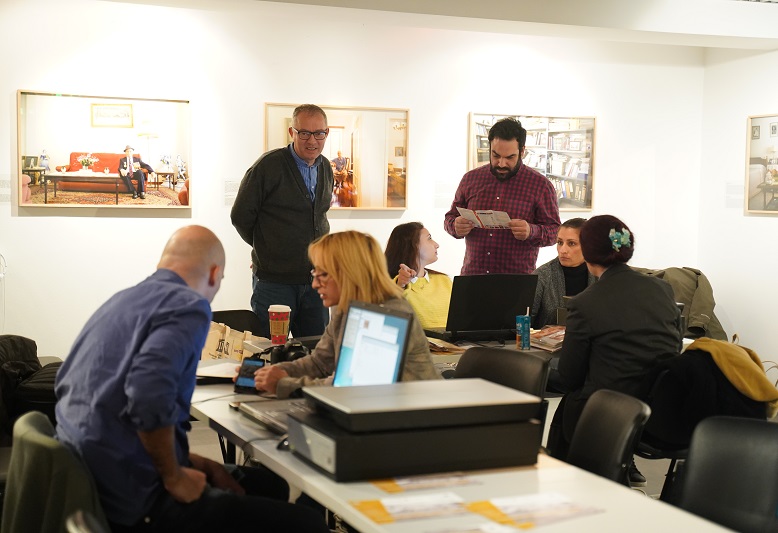img. WeAre#EuropeForCulture crowdsourcing event in Nicosia, December 2019. Courtesy of Cyprus University of Technology
CitizenHeritage – Citizen Science Practices in Cultural Heritage: towards a Sustainable Model in Higher Education is a new project co-financed by the European Union under the Erasmus+ programme, to empower Citizen Science and participation in cultural heritage as a booster for higher education. The virtual kick-off was hosted on 5-6 November by the project coordinator KU Leuven, with participation of all the partners.
CitizenHeritage will provide Higher Education Institutions (HEIs) with new insights and opportunities to include Citizen Science activities for social purposes into HEIs curricula, teaching and learning activities. It will offer them a selection of good practices on how to benefit from the knowledge circulation in and outside academia and how to adopt a more vibrant role in civil society. The digital realm, with the digitisation of vast collections published in open access, and the growing availability of tools for online engagement and interaction, opens up incredible new possibilities to further stimulate knowledge creation and circulation in cooperation with citizens. The project includes three universities (KU Leuven, National Technical University of Athens and Erasmus Universiteit Rotterdam), two Europeana domain aggregators (Photoconsortium and European Fashion Heritage Association) and one specialized SME (Web2Learn).
1. its ‘making citizens part of the workflow’ approach: a general reappraisal of citizen generated content is taking place in the cultural sector today. CHIs are constantly looking for new ways to involve citizens in their activities.
2. the close collaboration it establishes with the Cultural Heritage sector: via the active participation of Photoconsortium and European Fashion Heritage Association, the project will engage with stakeholders and professionals in the digital cultural heritage domain, establing collaboration for knowledge sharing and co-curation between academics and stakeholders.
3. its focus on technological innovation: the project aims to test how the latest technological innovations to manage digital cultural heritage can support and enhance Citizen Science participation, both from a pedagogical and heritage perspective.
4. its analysis of the conditions favouring sustainability: CitizenHeritage will explore the degree to which Citizen Science can be an element to stimulate sustainability by promoting social ownership of cultural heritage knowledge. To do so, this project proposes the conceptualization of cultural heritage activities engagement as a cultural common in which value is created by social engagement between HEIs, CHIs and citizens at large. Based on variables of governance, financing and social engagement, the project will then examine the conditions under which CS makes both socially and economically sustainable contributions.
Citizen Heritage is co-financed by the Erasmus+ Programme of the European Union, project number 2020-1-BE02-KA203-074727


